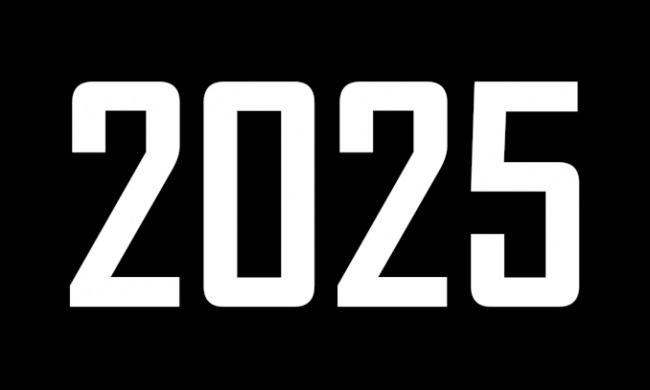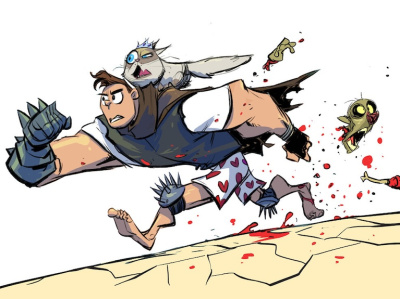Rarely has history presented us with such a clear choice of futures as the American people had last Tuesday. Now that the choice has been made for better or worse, it’s time to start preparing for the big changes that our fellow citizens have selected.
There is plenty to discuss about the implications of the election on just about everything, but in this piece, I’ll try to stick to the policies that President-elect Trump promised during the campaign, and things that his supporters could reasonably expect from his administration, as they relate to issues faced by the comics industry.
Pricing and supply chains. One of the centerpieces of Trump’s campaign was the promise to impose tariffs as high as 60% on imports from certain countries, particularly China. By all indications, he is serious about this.
The immediate effect of tariffs will be to raise the cost of imports significantly, meaning that any publishers or makers of games and toys who rely on foreign sources of printing, raw materials or manufacturing should be prepared to pass those costs along as higher prices for consumers, and/or seek domestic sources of supply. Even products from Canada would be subject to tariffs as high as 10%, according to reports, which means that printing costs for most U.S. comics would be immediately affected (see "Where Are American Comics Printed?").
The increased cost of raw materials and importing physical products from overseas to the U.S. could accelerate a shift to digital services, as it is not clear how tariffs would apply to IP. Fans who want to read rather than own comics, and the companies set up to sell to them, would be the winners in this scenario.
Economists also worry that an immediate and dramatic rise in consumer prices due to tariffs could spark more inflation, leading to higher interest rates, and perhaps a decline in overall economic activity. As we saw in 2008-2012, when the overall economy gets sick, the comics business gets pneumonia. Let’s hope not.
Finally, history teaches us that when one country imposes tariffs, other countries retaliate to even the playing field, as happened in the late 1920s. The near-term effects of this are to make American-made goods more expensive overseas, which could also hurt domestic producers. An appreciation in the value of U.S. dollar, which we’re already seeing, could do this even without a full-on trade war.
Deregulation and consolidation. Historically, Republican administrations are good for big businesses who want to get bigger without the burdens of government oversight and regulation. Companies in the media space are already looking forward to this, looking at ways to roll up or consolidate fragmented industries without facing antitrust scrutiny.
A piece in The Hollywood Reporter yesterday speculated that the rivalry between traditional entertainment companies and big tech could become a full on war for the dollars and attention of media consumers, with far fewer barriers to the ambitions of Apple, Google, Amazon and the other players in the space. This could ultimately impact the studios who own Marvel Comics and DC Comics, as well as those with stakes in independent publishers.
For writers, directors and others working in the entertainment industry, it’s probably good that they got their contracts in place (in some cases following strikes), prior to 2025. The incoming Trump administration may be popular with working class voters, but they are no friend of unions. Efforts to unionize within the comics industry are highly unlikely to receive the same kind of support they received from the outgoing administration’s Department of Labor.
Rollups could also be coming for comics retail and fan events, as the wealth and power disparities between big companies and small businesses continue to widen. Especially if prices and interest rates go up, the pressure on small operators to sell out to the big guys will become hard to resist.
Finally, Trump and his allies are also fans of cryptocurrencies and related technologies, which have already seen a big surge since the election. It’s possible that "digital collectibles" business models that failed in market two years ago amid the stink of scammy techbro shenanigans (which people smarter than me saw as overcoming any possible creator-centric benefits of blockchain technology) could be back with a vengeance.
Content and censorship. Another big issue in the election was culture. Trump’s campaign made Vice President Harris’s position on LGBTQ+ issues a centerpiece in their appeals to voters and it worked. We know there are big chunks of Trump’s coalition now eager to put policies into effect to accelerate the country’s transition to a "traditional" society.
Expect escalated legal and legislative attacks on any content that runs afoul of these folks’ tender sensibilities, particularly anything touching on trans-positivity. The CBLDF and its allies will have its hands full for the next four years, and victory in the courts in this climate is by no means assured. Even favorable rulings will need to be enforced, and it’s not clear the incoming administration sees any obligation to do that.
The bigger concern is that these efforts won’t be limited to official policies. Social conservatives who see themselves as having been stigmatized for their views now feel emboldened by the election results to get payback. That could leave creators, retailers, publishers and others facing threats from aggrieved and militant fans or members of their community, not just organs of government. Considering there are parts of the Trump coalition who see the entire entertainment industry as an arm of the "resistance," this could have a chilling effect across the entire business.
The future’s so bright I’d rather go blind. Strictly on a business basis, it seems reasonable to assume that the Trump administration will move forward as far and as fast on these fronts as they can. They actually gave us the roadmap (and here, for a contrarian take in comics form), and while there’s reason to doubt Trump’s sincerity on some matters, these don’t seem like he was kidding.
The upside is that people will probably need some form of escape, and comics have traditionally been good at that. The problem is, in most comics, the bad guys tend to lose in the end, and those kinds of stories might not be as comforting as they used to be for lots and lots of people.
The opinions expressed in this column are solely those of the writer, and do not necessarily reflect the views of the editorial staff of ICv2.com.
Rob Salkowitz is the author of Comic-Con and the Business of Pop Culture and a two-time Eisner-Award nominee.

Column by Rob Salkowitz
Posted by Rob Salkowitz on November 12, 2024 @ 3:59 am CT
MORE COMICS
Part of 1996 Marvel/DC Crossover
August 1, 2025
Writer Karl Kesel and artist Mike Wieringo are the creative team for the one-shot comic, which was first published in 1996 in the middle of a Marvel/DC crossover.
Crowdfunding Campaign Launches in October, Followed by Retail Release
August 1, 2025
Vault will crowdfund the graphic novel on the Backerkit platform in October, then release it to retail.
MORE COLUMNS
Column by Scott Thorne
July 28, 2025
This week, columnist Scott Thorne comments on the Edge of Eternities prerelease and on Magic: The Gathering news from the Hasbro earnings report.
Column by Rob Salkowitz
July 21, 2025
Columnist Rob Salkowitz lays out the Comic-Con panels of interest to industry professionals, current and aspiring creatives, educators, librarians and retailers.








